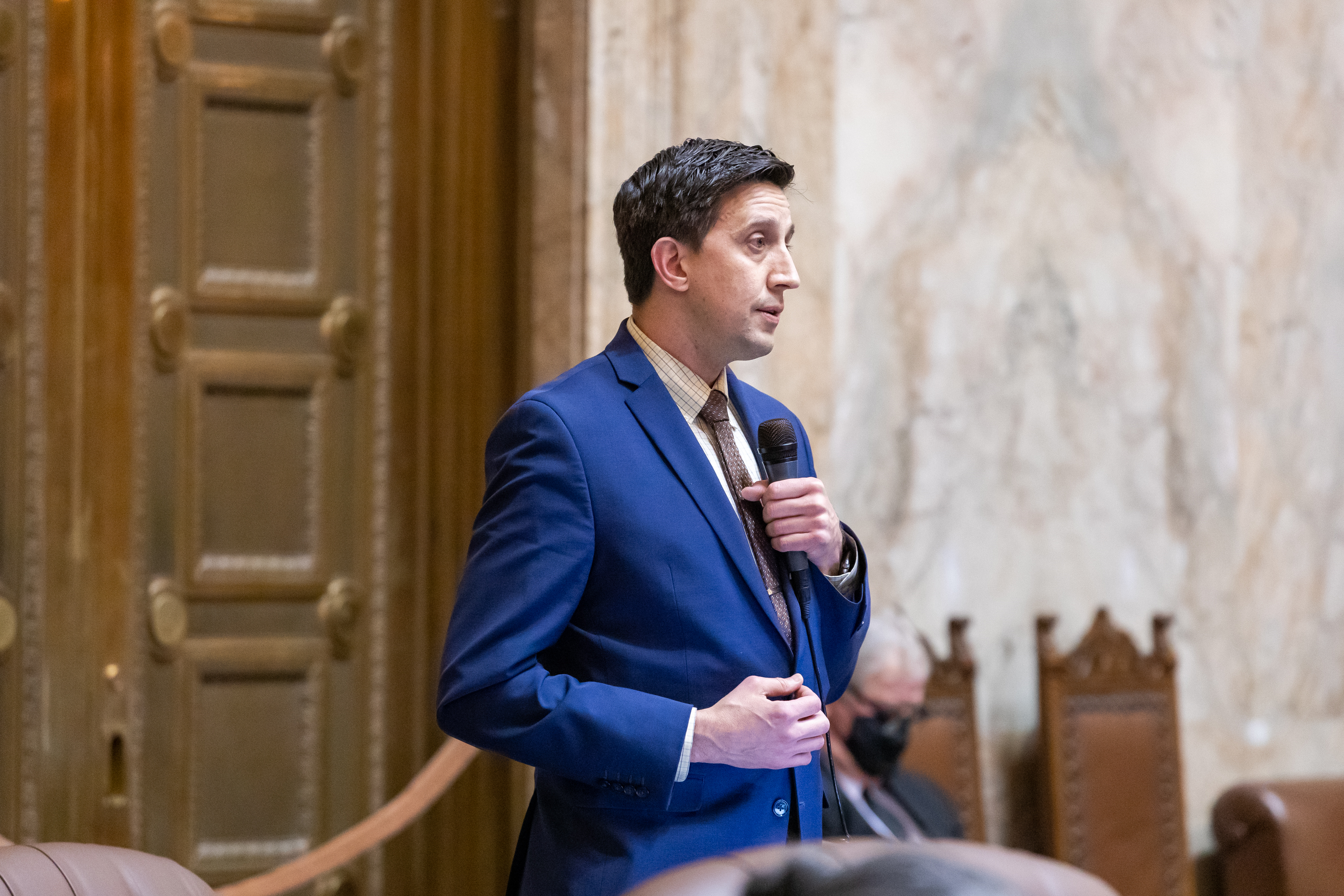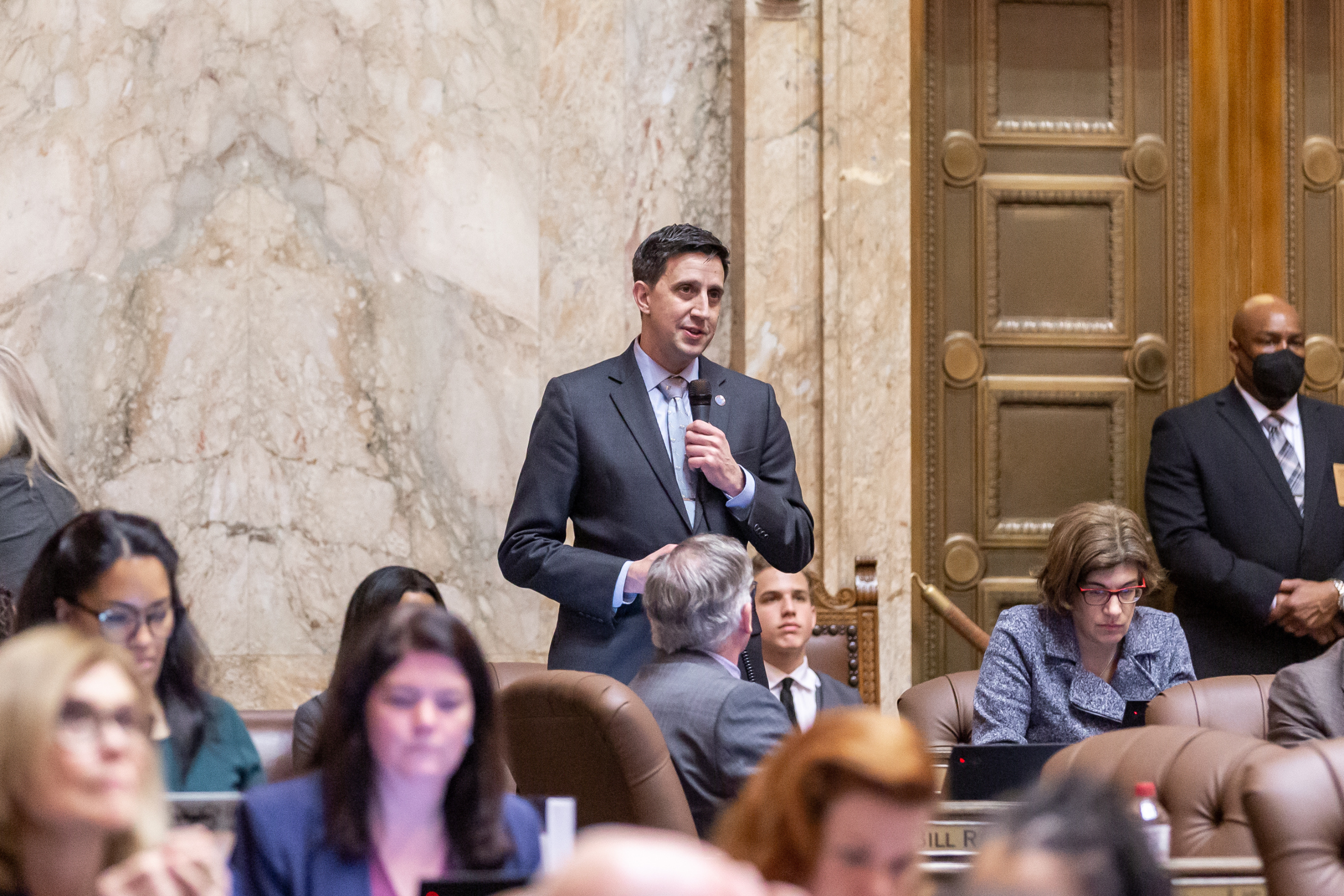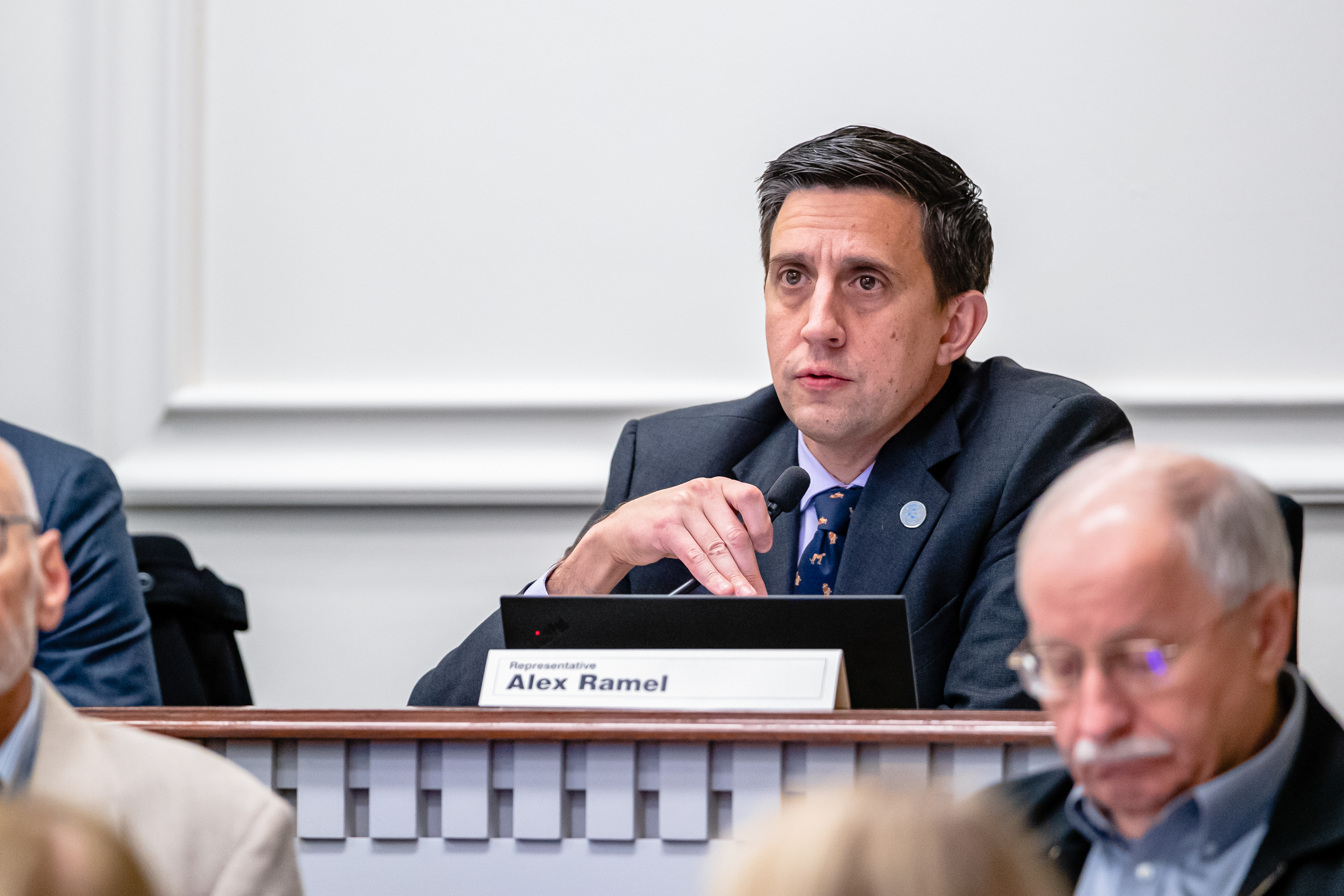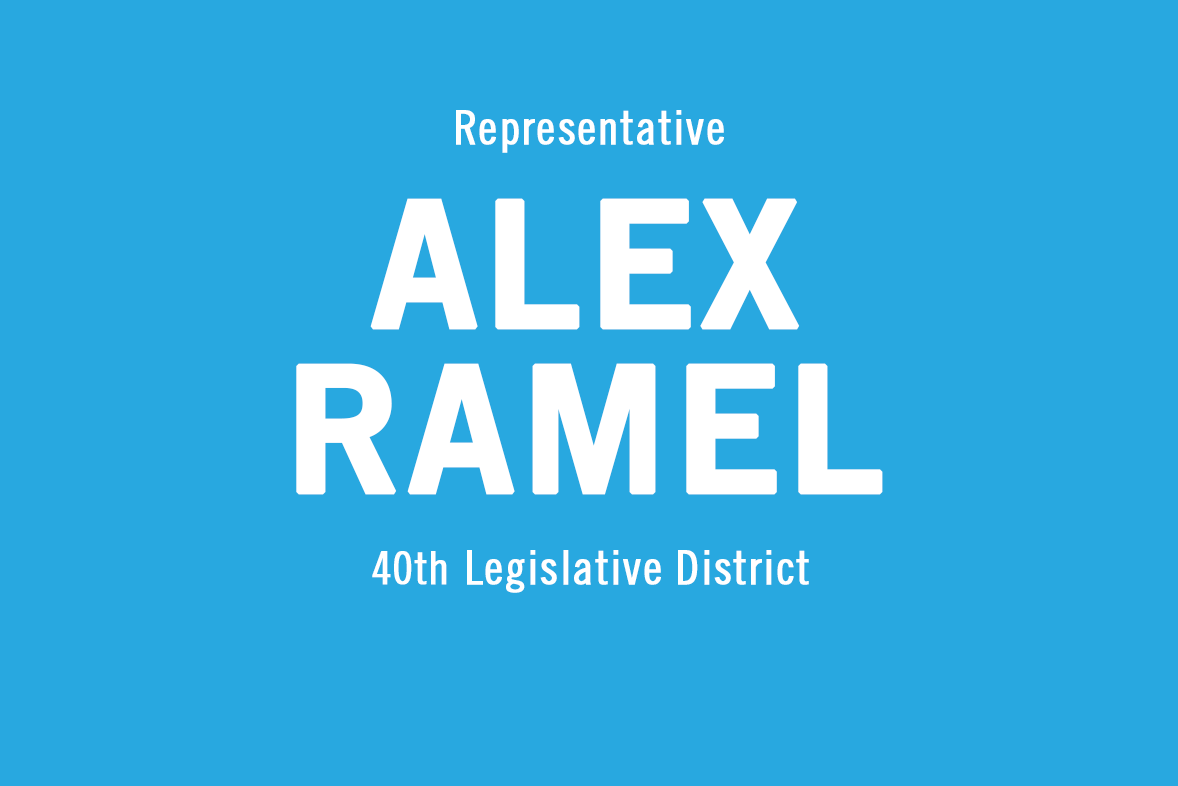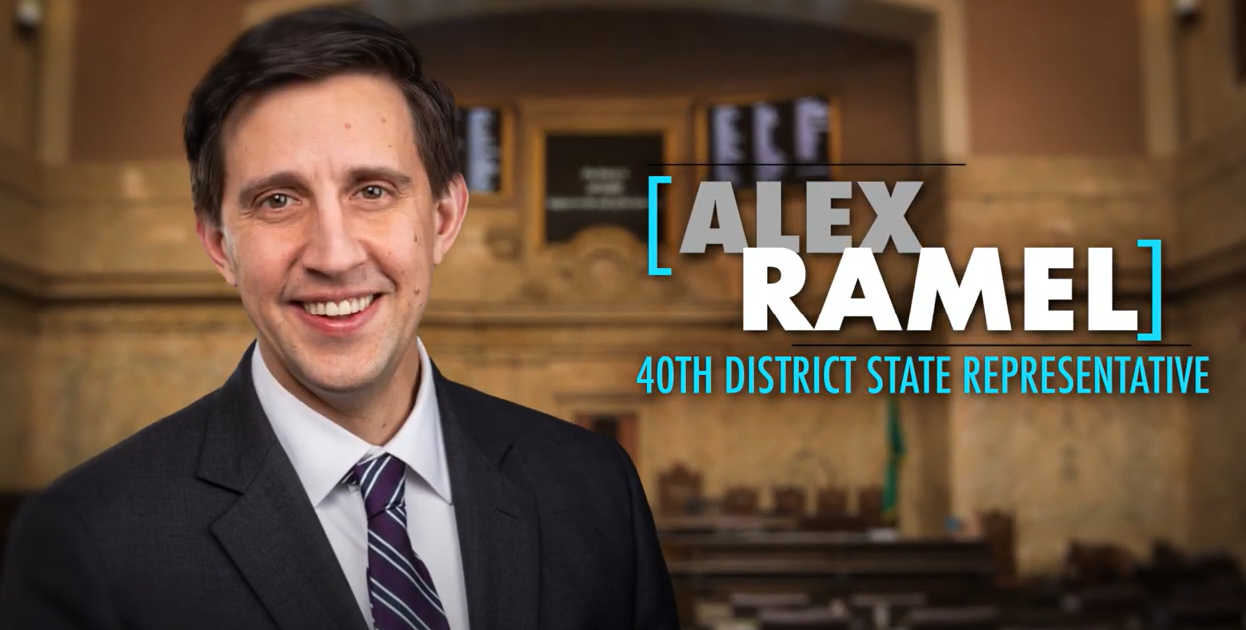Dear friends and neighbors,
We are now three weeks into this year’s 60-day legislative session, and I am excited to share some updates on projects I’m working on and resources that impact our community.
Video Update
While I touch on these topics in greater depth in the remainder of this newsletter and my Protecting Renters Newsletter, I’d like to provide a short video update on the rent stabilization bill, as well as efforts to inform consumers about where Washington’s oil is coming from. Click here or on the video below to learn more:
Decarbonization
If you’ve spoken with me before, you know how important I think it is that we address the climate crisis with a holistic approach. We need to act in parallel to get fossil fuels out of our electric grid and decarbonize buildings. This year we’re working on exciting opportunities to find synergies between these two.
For example, thermal energy networks are a great way to decarbonize buildings that have been using fossil fuels, and these smart networks can help reduce or shift peak electricity demand. House Bill 2131, which had a committee hearing and was passed out of committee almost unanimously, works with utility companies to create more of these efficient networks. The Building Energy Upgrade Navigator we want to create with House Bill 1391 will help home and business owners access existing federal, state and utility resources for energy efficiency and electrification. House Bill 2129 will help us explore the potential of geothermal energy in Washington, which if done the right way, could contribute significantly the energy needs of our state.
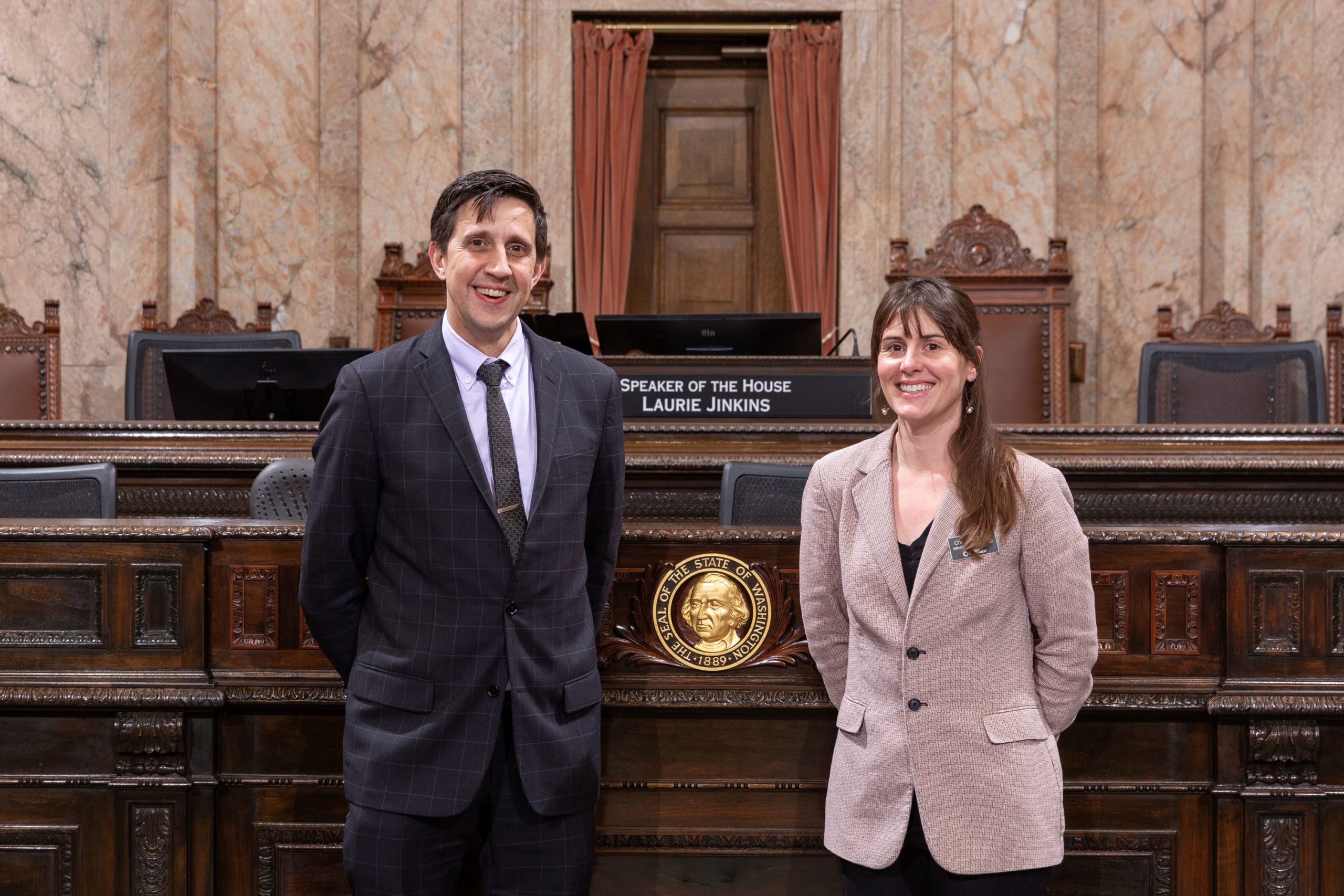
In combination with smart projects funded by the state’s climate commitment act – which can be viewed here, we can create a future that reduces our state’s dependence on non-renewable energy dependence, and transition to a clean energy economy that uplifts and supports all communities in Washington.
Oil & Human Rights: Unveiling Problematic Sources and Empowering Consumers
Recent global events have shed light on the concerning reality of several countries producing and exporting crude oil. The truth is many Washington refineries rely on imports from countries with serious and deeply concerning human rights records.
In an effort to break this cycle of inadvertent complicity, I’ve introduced legislation (HB 2143) that will increase consumer awareness and fuel responsible choices at the pump. The bill proposes a three-pronged approach:
- Shining a Light on Shadows: Relying on the Jackson International School, we can compile a comprehensive list of human rights violations linked to oil-producing nations. This transparency will be crucial in understanding the true cost of our fuel dependence.
- Empowering Informed Choices: Instead of keeping import data buried on an obscure section of a federal government website, HB 2143 advocates for public disclosure. Consumers deserve to know the origins of their fuel and the potential ethical implications hidden within each gallon.
- Guiding Responsible Consumption: With clear, accessible information on problematic oil sources readily available, consumers have more ability to avoid fuels implicated in human rights abuses. This shift in purchasing power can send a powerful message to both refiners and producers alike.
While the future belongs to clean energy, the transition away from fossil fuels won’t happen overnight. In the meantime, we have a responsibility to minimize the negative impacts of our current reliance on oil. HB 2143 empowers Washington citizens to choose fuel with a conscience, prioritizing ethical sourcing and promoting a global shift towards responsible energy practices.
ASL on TVW
Government should be accessible to everyone. That’s why I’m excited to share another step toward that goal: picture-in-picture American Sign Language interpretation is now available for select committee hearings during the 2024 legislative session on TVW and TVW.org!
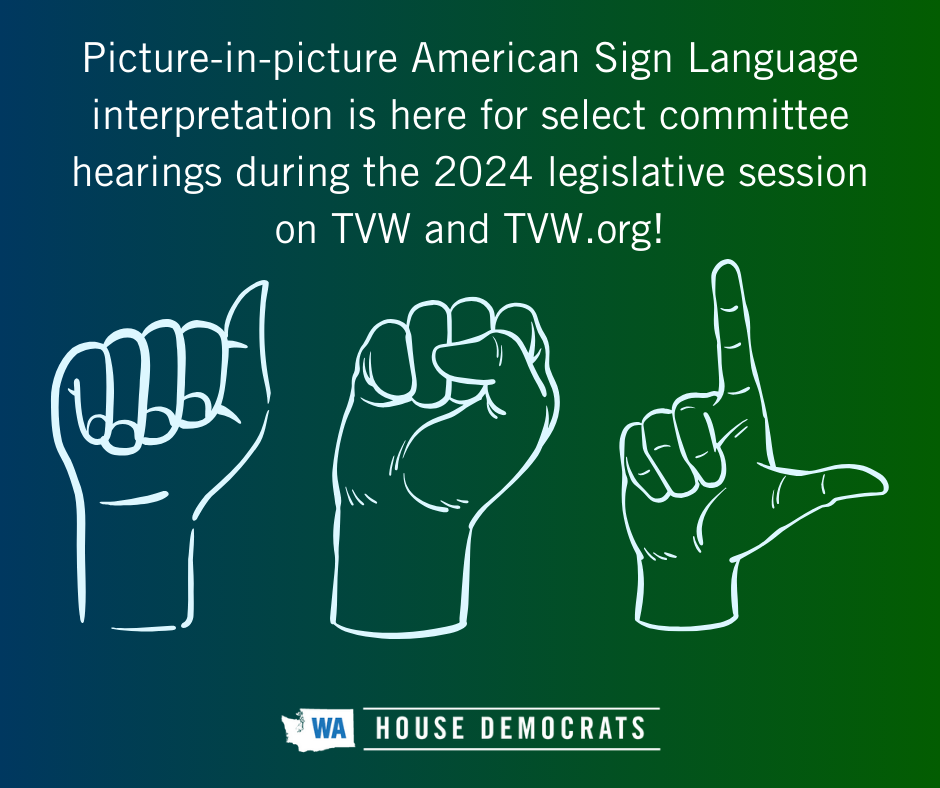
The schedule of picture-in-picture ASL interpretation can be found at the Washington State Legislature website: https://app.leg.wa.gov/committeeschedules.
You can also find this information by visiting https://tvw.org/schedule, click on the three lines on the top left of the webpage to enable the menu. Then choose “media archives.” Set the start and end dates of your choice, under “categories” select “ASL”, and click on “submit.” All the hearings you will see listed will have ASL interpretation available.
Learn more about accessibility accommodations in the Legislature: https://bit.ly/AccessibilityInfo
In service,

Rep. Alex Ramel
WA State Representative | 40th Legislative District
House Majority Whip
Pronouns: he/him/his
